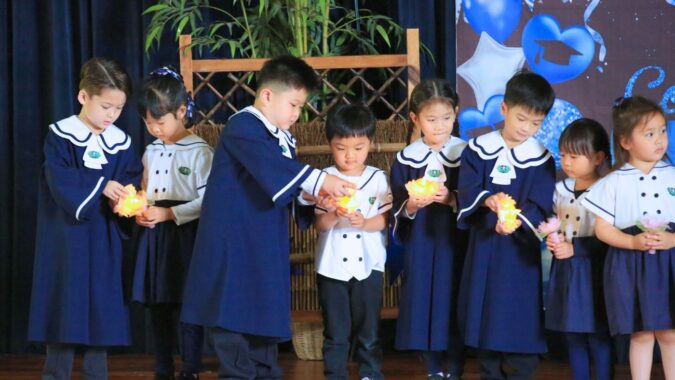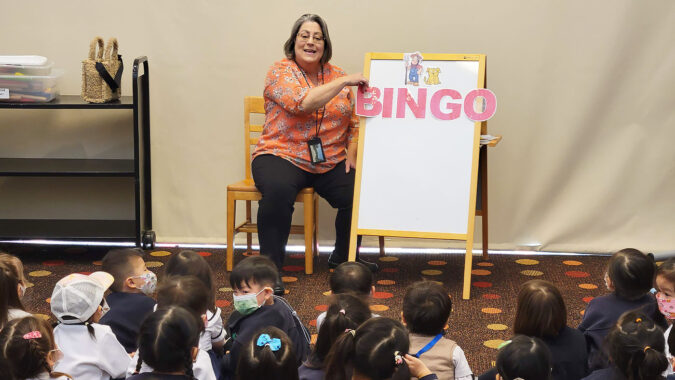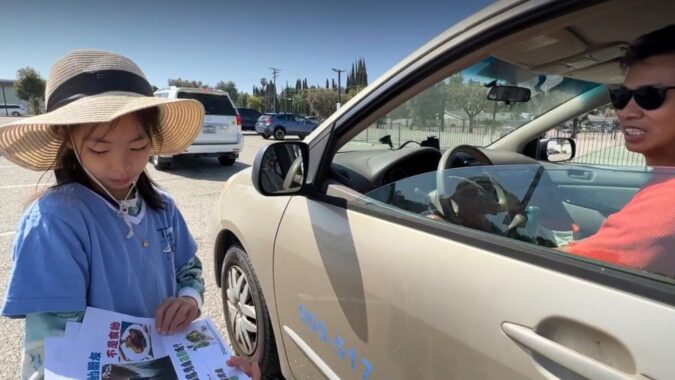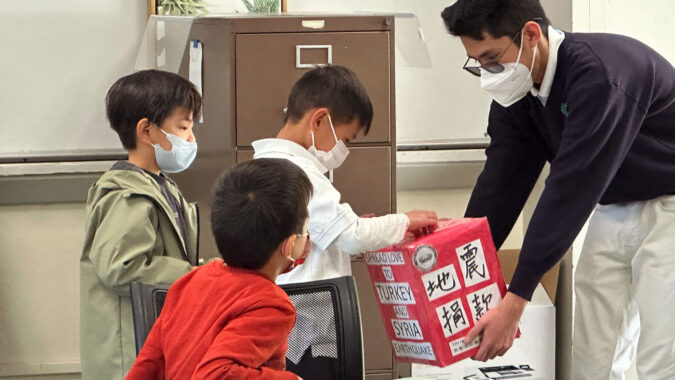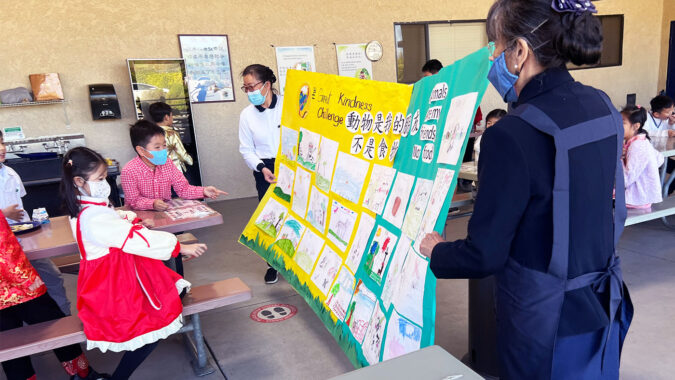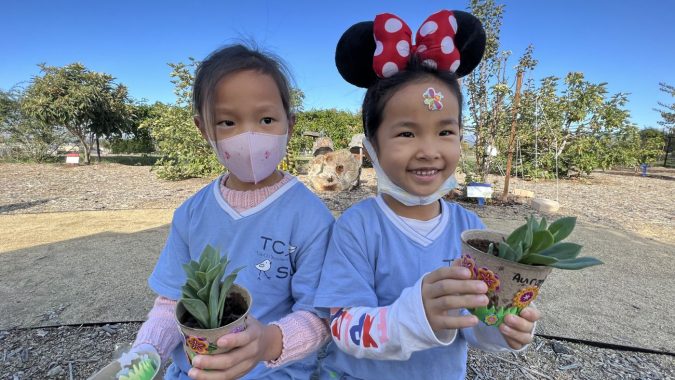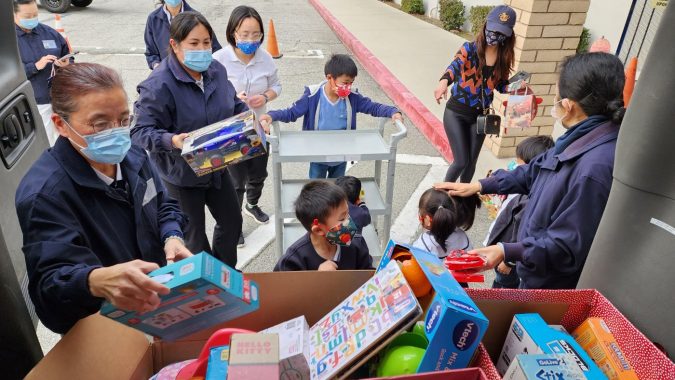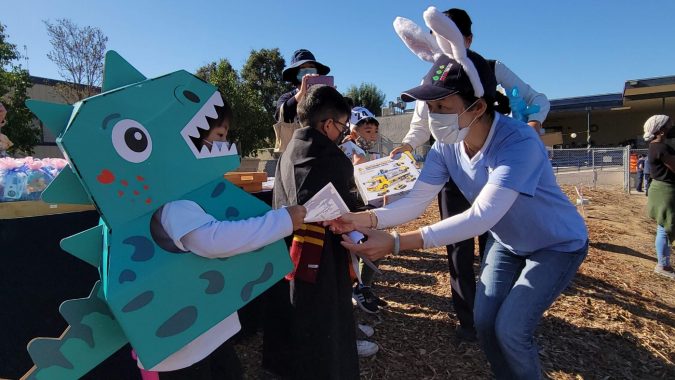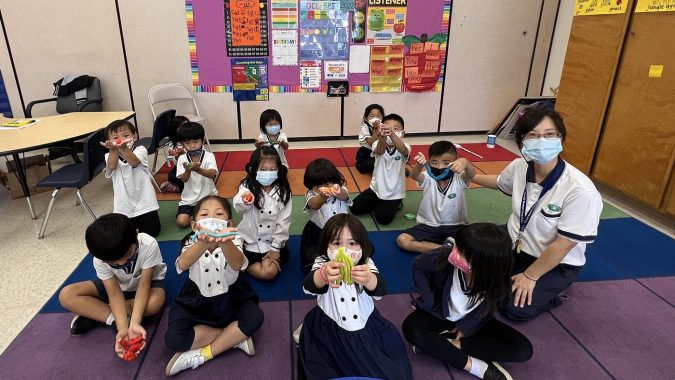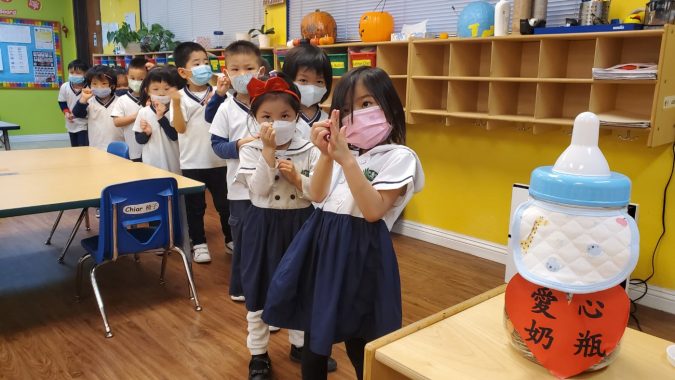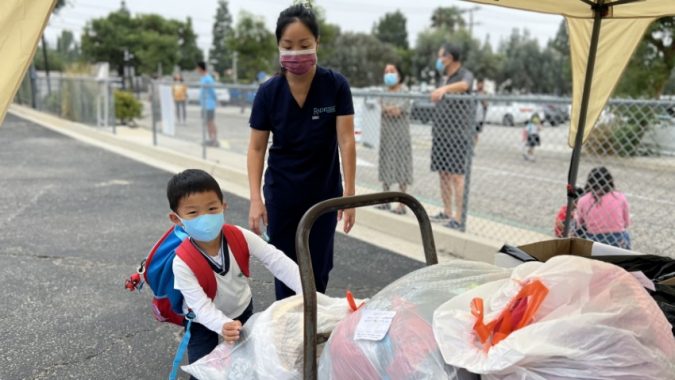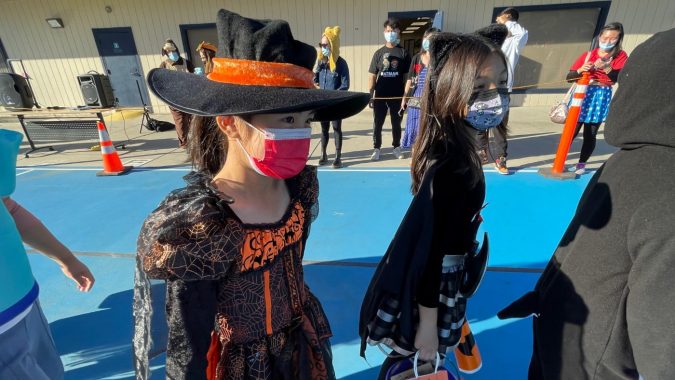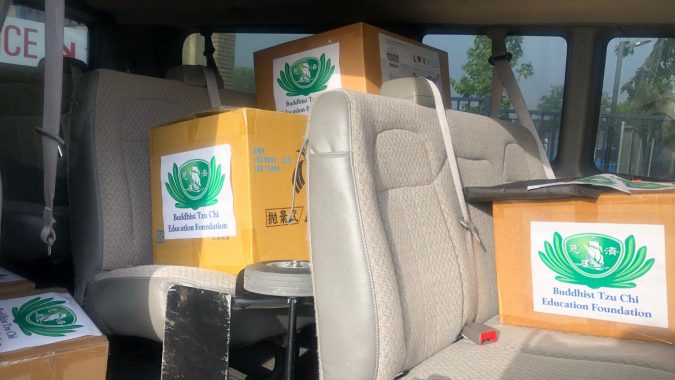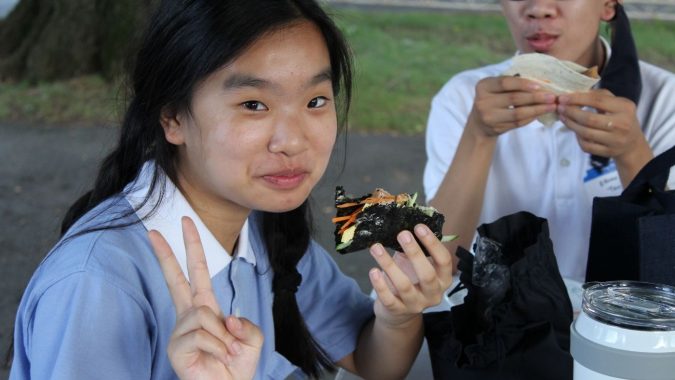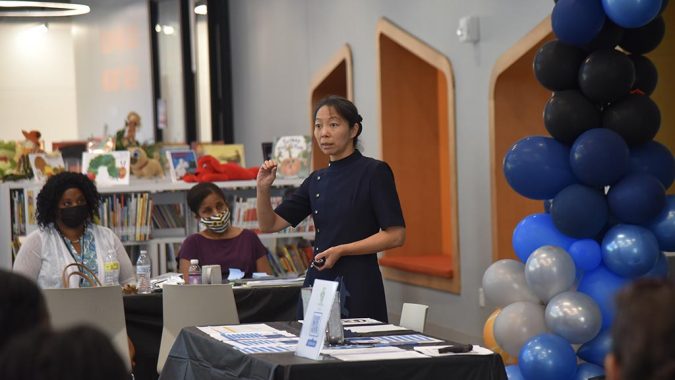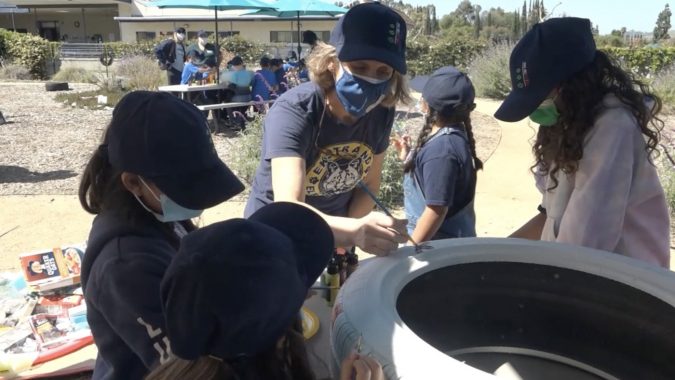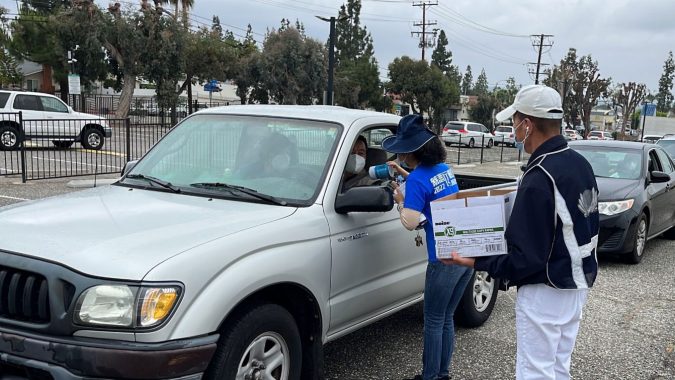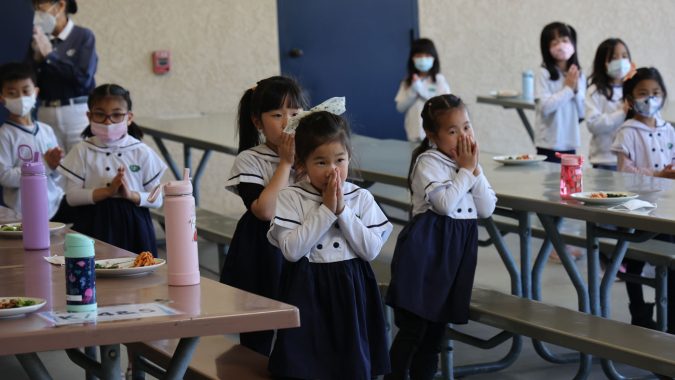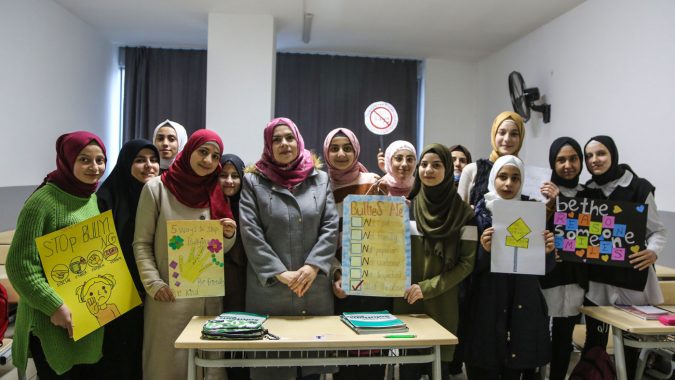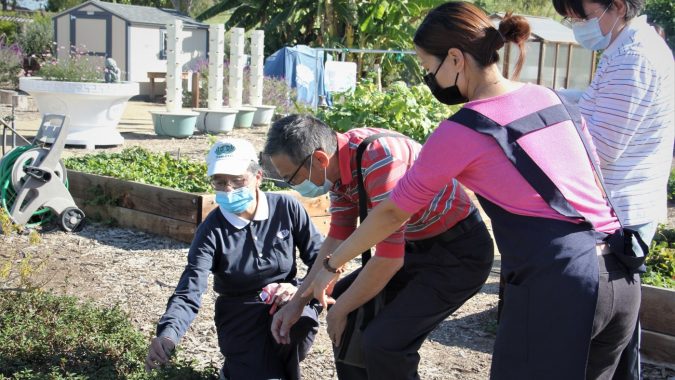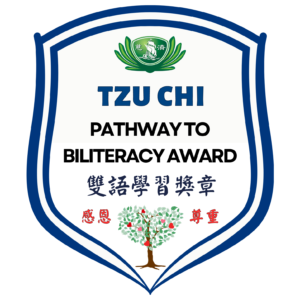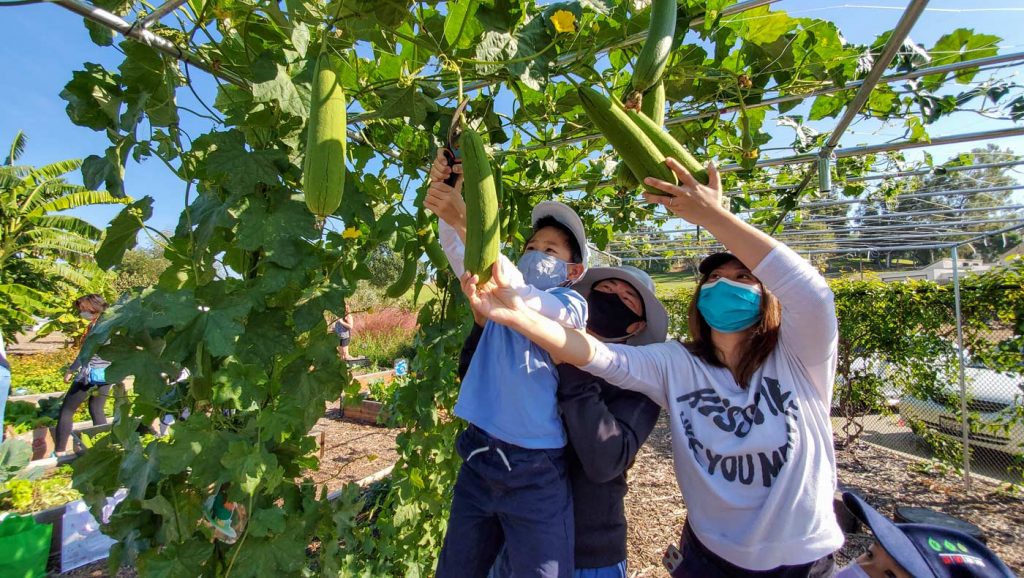
Written by Phil Huang
Translated by Mark Wan
Edited by Diana Chang, Adriana DiBenedetto
During the pandemic, what was once a lively garden where children joyfully frolicked with friends had suddenly become a very quiet space. California had issued stay-at-home orders to uphold the wellness of communities, and all in-person classes were moved online — including those at Great Love Preschools and Tzu Chi Elementary Schools. Throughout this period, approximately 200 school teachers, students, and their parents couldn’t come to visit the garden. After some time and thoughtful discussions, however, the hopes of Tzu Chi USA’s education team had come to fruition through the reopening of a “Life Science Farm,” allowing the children to once again bask in the sunshine, birdsong, and fragrant flowers.
Hold Nature In Reverence And Accrue Blessings
On May 30th, 2019, the Life Science Farm located on Tzu Chi Elementary School’s campus in Walnut, California, officially opened, and adults and children alike couldn’t wait to plant new seeds of joy and hope.
Volunteers joined in the efforts to plant an indigenous fruit tree that would bear fruit after two to three years. Students either picked up vegetable seedlings to fix them onto the hydroponics racks, or planted flowers in the hopes that they’d soon grow up through the pollination of bees.
Lawrence Luo, who was in charge of the farm project, stated that, “The garden combines education regarding ecology with outdoor exploration, so Tzu Chi students may avail themselves of these special natural classes to broaden their horizons and to care for life.” He further explained three lessons the farm teaches.
The first inspires knowledge and reverence for nature’s wonders. The second illustrates ways to love the earth through situational and environmental education. The third conveys the compassion and appreciation for all things as expressed by Dharma Master Cheng Yen.
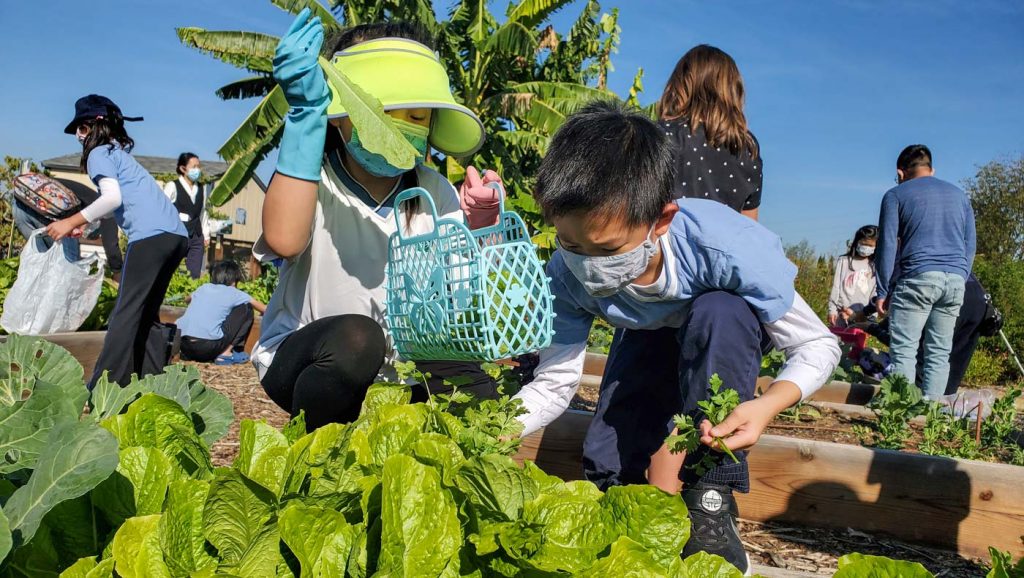
The school’s president, Ashley Grover, considered this farm as a microcosm of nature and nurture in which she was glad to practice her educational ideal. “It’s good to have a peaceful natural environment wherein students work with plants, either cultivating, picking, or tasting,” she said. The Life Science Farm also allows students to plant fruits and vegetables according to the changing seasons. In one section of the farm, they planted Asian fruits, and in the meditation garden, they cultivated plants for relaxation, like bamboo steeped in zen. Arranged in the center of the farm were chairs constructed out of sawed-off tree stumps.
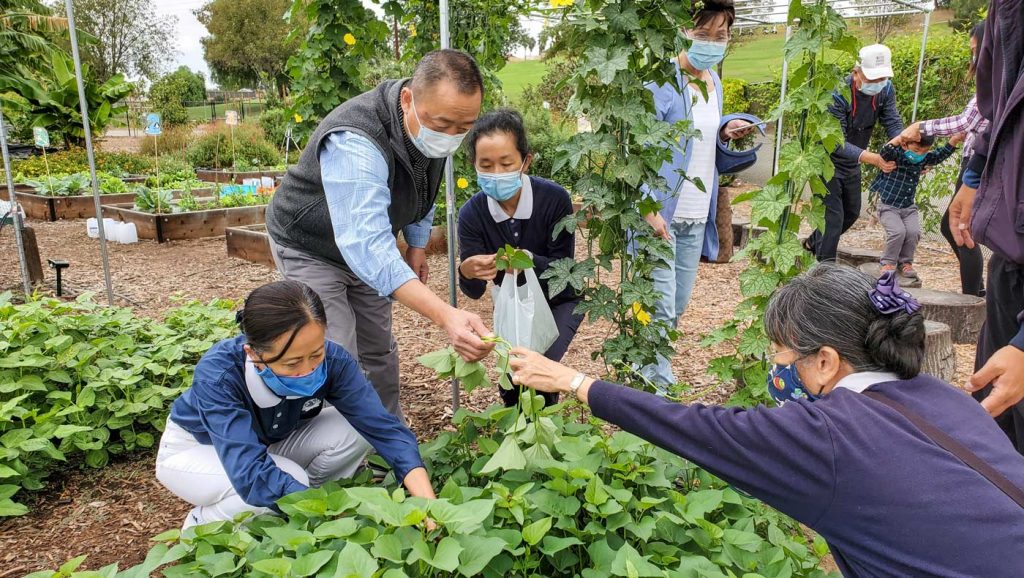
Happy Devotion & Horticultural Talent
The vegetables, flowers, and fruit tree that had flourished after being planted back in 2019 ended up wilting during the shutdown, and the education team found themselves in a bind. Out of all the members on their team, no one had experience in cultivation and horticulture, and thus, they were unsure of how best to revive the garden.
Ben Tu, the Director of Humanistic Culture at Tzu Chi USA’s Education Foundation, knew that time would be of the essence if planting was to begin appropriately, and enlisted the help of a horticultural expert while continuing to research these topics, himself. The individual Director Ben Tu contacted to revive the farm was a horticultural teacher — Mr. George Chen of “Taiwan Farmhouse.”
“How do I quickly revitalize this piece of land?” George Chen asked himself as he rapidly set up an agenda. He then began tutoring volunteers on some techniques, such as loosening the soil, spreading fertilizer, pruning, trimming, and burying pipes to set up vegetable growing scaffolds. He also graciously donated a large number of seeds, vegetable seedlings, and melon sprouts, to get the farm back on track.
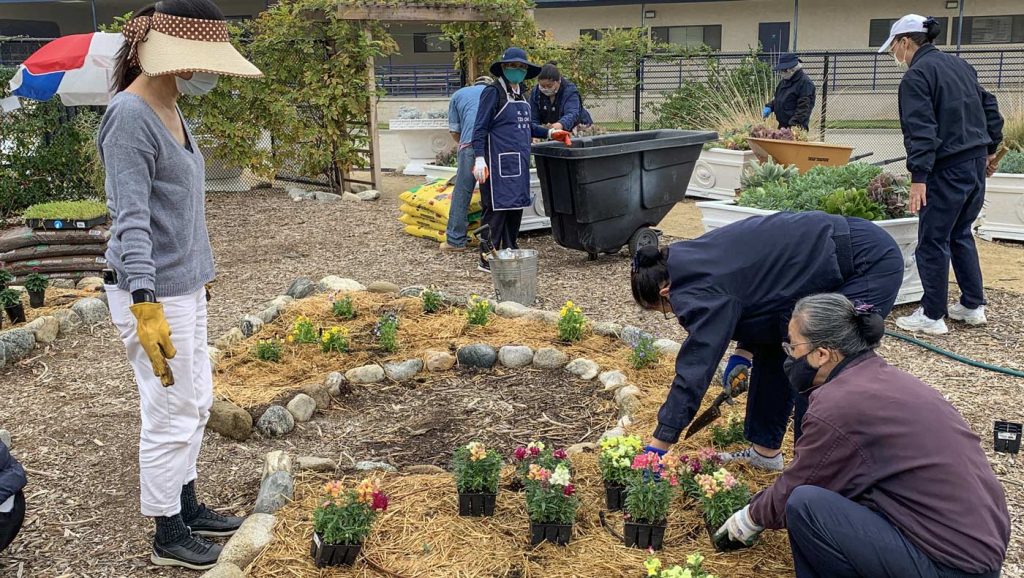
Cultivate Happiness & Expand the Field of Blessings
One month later, thanks to the love and care of everyone involved, new seedlings and leaves began turning up again on the farm. A volunteer named Margaret Ho was new to the farm and was immediately attracted to the colorful flowers and grass among the vibrant environment. “Under the pall of the pandemic, reopening the farm for playing in the dirt can effectively ease up pressures on people, both physically and psychologically,” she said with excitement. As she continued to offer her time and efforts in the garden, Margaret Ho had taken on the philosophy of “letting go and taking hold,” meaning that the appropriate way of cutting and pruning ensures more robust sprouting and growing. And this can apply to one’s daily life as well, striving to uproot the seeds of despair before they had a chance to grow, and instead sowing seeds of positivity in one’s life.
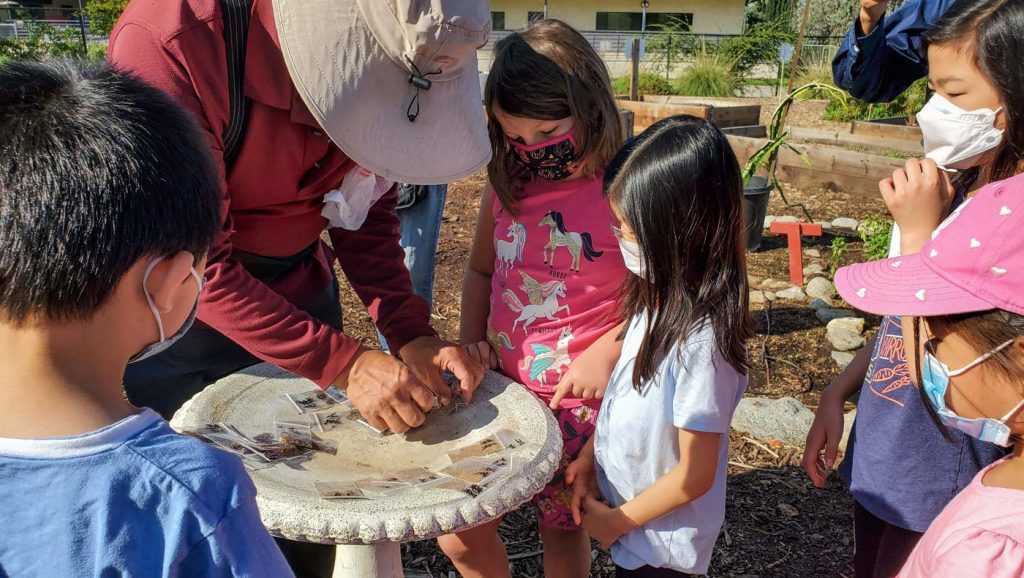
What volunteer Helen Cheng loved most was the meditation garden. Whenever she finished planting, she would come here, find a rock, and sit down with eyes closed and ears tuned into the sounds of nature. After months of witnessing the changes that the garden had gone through during the changing seasons, she, too, felt her outlook on life had shifted. “All of the things there are morphing through different phases and transformations,” she said, and likened these phases to that of the human cycle of birth, aging, disease, and death.
A volunteer named Charlotte Wang was also happy to engage in the activities and share the vegetable seedlings with the community. Through this, she also shared her care for the environment and the value of eating vegetarian meals.
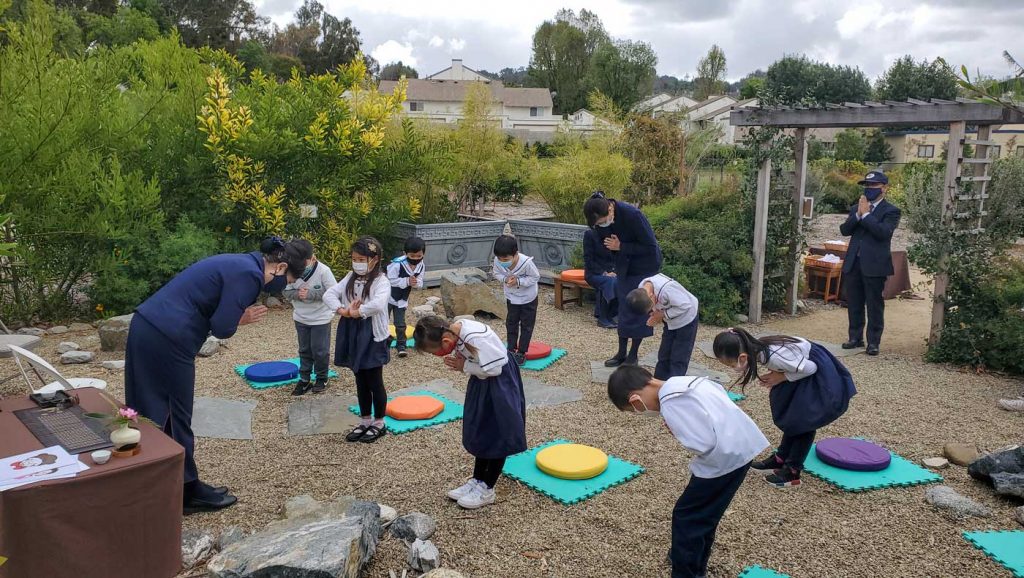
Cultivating Compassion
In the months that followed, each weekend saw families tending to the tiny pieces of land they each adopted at the farm. A family with three generations could be seen watering, sowing, pruning, and harvesting. Mothers previously unfamiliar with one another would later stand amongst their respective patches of garden comparing notes on cooking what they’d harvested. Children got to know each other, played together, and kneeled on the ground to observe the little seedlings. Upon taking in these sights, the farm’s staff members immediately knew they would always cherish the memories fondly.
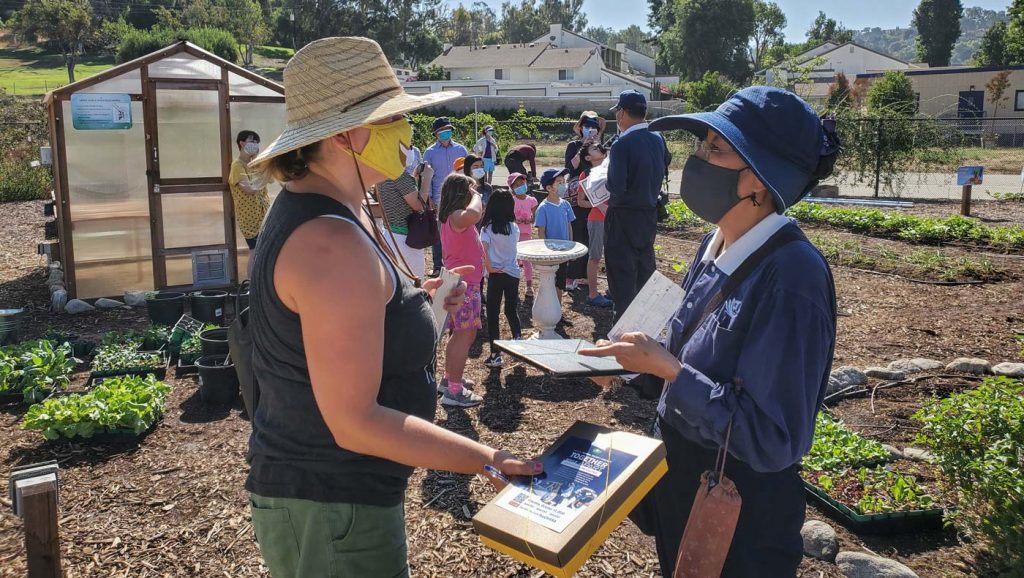
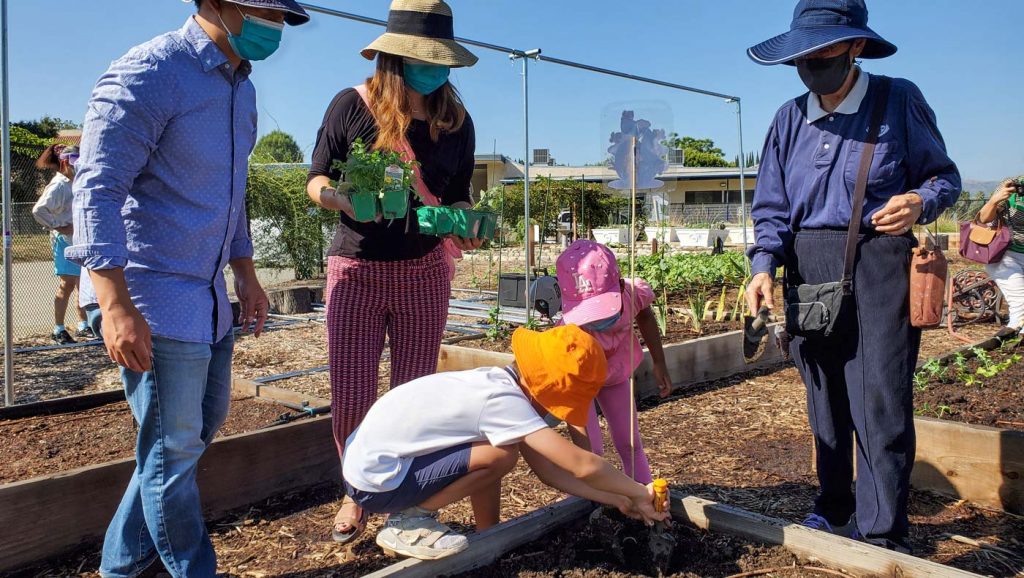
A parent named Carolyn Chen expressed her gratitude for the activities as well, and said that it had been a wonderful bonding experience for her and her child. In the past, her child was very shy and often waited quietly on the sidelines. But being on the farm had inspired something of a transformation for the youngster, who was happy to mingle with others in nature.
Another mom, Amber Boyle, gladly shared what she’d learned from a volunteer about the benefits of cooking potato leaves. Her husband had even reduced his meat intake and turned more toward vegetables after being introduced to potato leaves. Amber came every week to pick up different greens to cook for their family, and became an excellent spokesperson for the farm crops.
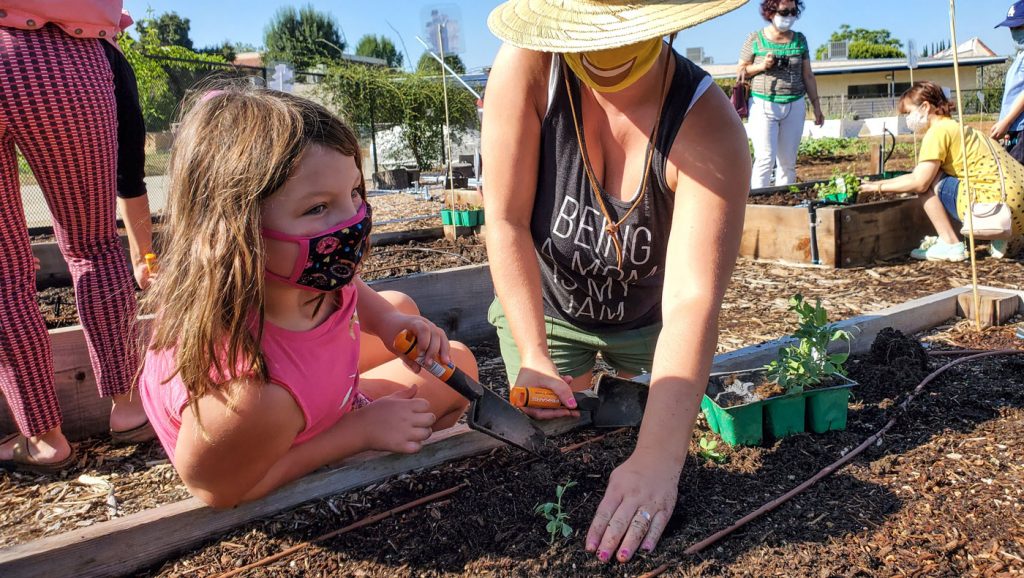
Humans were the ones who planted these marvelous greens, but they were not the only ones attracted by the verdant environs. Rabbits and squirrels also frequented the farm. Horticultural volunteers once recited sutras to these tiny visitors, and they seemed to enjoy the kindness of the farm staff who let them merrily go on their way. When it came to protecting the produce, volunteers used environmentally friendly bottles with cutouts to safeguard seedlings, and some tried to preserve the plants by other natural means. Yet, the little guests always found a way to share the resources this farm provided. It was indeed a harmonious home to all.
This piece of land that brought wonderful memories to both adults and kids also gave rise to a cycle of healing and benevolence. At the end of 2019, Chih-ho Wu, a chef from Taiwan, suddenly had a stroke. During the pandemic’s shelter-in-place period, Tzu Chi volunteers continued to make telephone calls to lift his spirits. When Chih-ho Wu recovered, he began taking part in volunteer activities on the farm. Always known for taking the initiative, he mowed the grass, pruned leaves, and went about various other tasks with quiet diligence. It was a most comforting scene for the education team to see Chih-ho Wu had found his emotional home here in the garden.
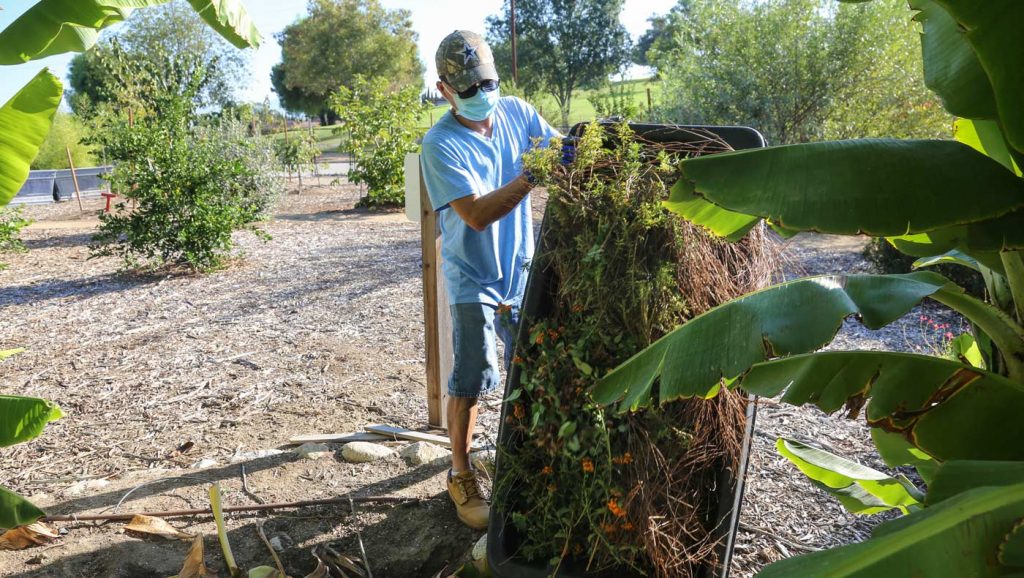
Sowing Seeds of Great Love
Debbie Lee, the Deputy Executive Director of Tzu Chi USA’s Education Foundation, said that during the pandemic, the Life Science Farm has become a beneficial way for Tzu Chi families and community members to safely get together outdoors while following the guidance of Master Cheng Yen. The teaching, “Do good deeds, strengthen good ties,” goes hand-in-hand with the farming project that promotes eating veggies and shares information about preserving the planet.
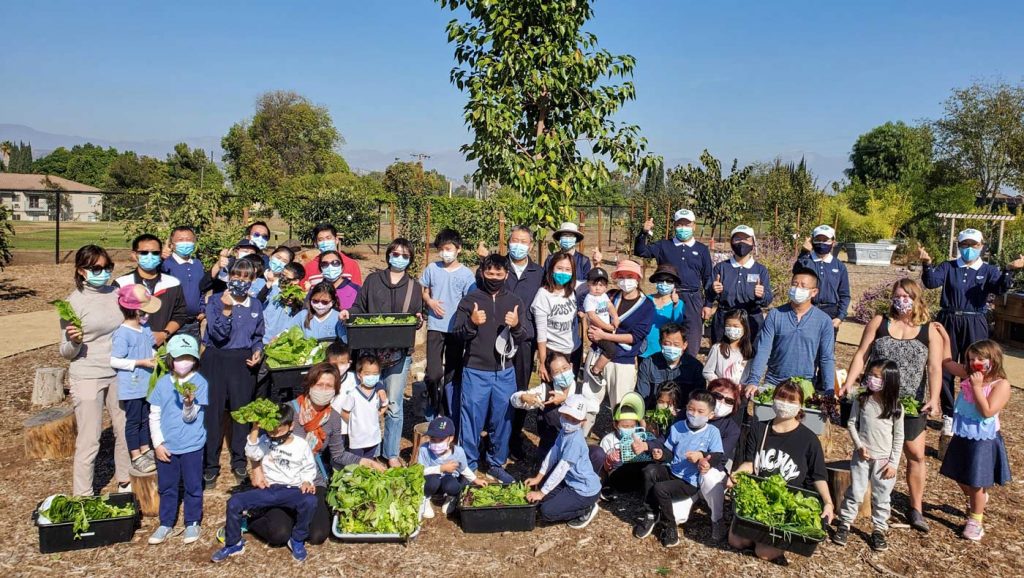
Smiling against the azure sky, volunteers and community members alike joyfully tilled the dirt, and found peace through acts of togetherness in nature.





